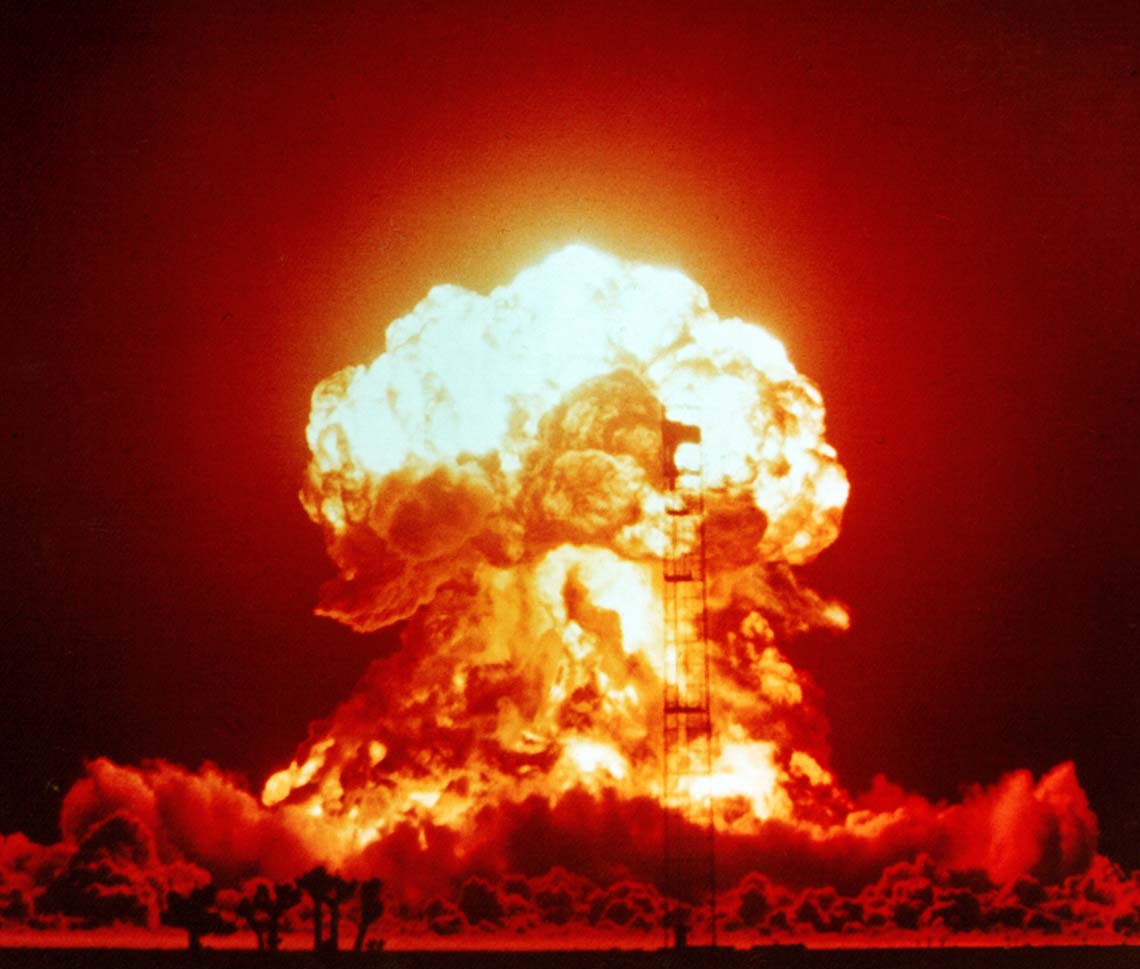I have blogged about the destruction that would be caused by a nuclear war before. Since there is currently grave concern that a nuclear conflict could break out between North Korea on one side and South Korea and the United States on the other side, I thought that I would revisit the subject.
Nuclear warheads are rated in terms of kilotons of TNT. The U.S. dropped a twelve kiloton nuclear bomb on Hiroshima at the end of World War II. It is estimated that it killed about one hundred thousand people and totally destroyed the city.
The U.S. currently has about seventeen hundred nuclear warheads deployed on intercontinental ballistic missiles, submarine launch ballistic missiles and nuclear bombers. The U.S. has another four thousand nuclear warheads stockpiled. The warheads have yields from three to five hundred kilotons. Russia has nineteen hundred and fifty warheads deployed on intercontinental ballistic missiles, submarine launch ballistic missiles and nuclear bombers and four thousand and three hundred stockpiled. These missiles have yields similar to the U.S. nuclear arsenal. France has about three hundred warheads with two hundred and eighty deployed. China has two hundred and seventy warheads with none currently deployed. The U.K. has a hundred and twenty deployed warheads with another ninety-five in reserve. Israel has about eighty warheads with none deployed. Pakistan has from one hundred and twenty to one hundred and thirty warheads with none deployed. India has from one hundred and ten to one hundred and twenty warheads with none deployed. It is estimated that North Korea has about twenty warheads with none deployed.
The detonation of a nuclear bomb results in five different types of destructive impacts. There is an initial blast wave that generates a supersonic wind that rushes out in all directions, destroying everything in its path. People who are not killed by the impact of the blast may be killed or injured by flying debris carried by the wind.
An electromagnetic pulse generated by the detonation can damage or destroy all electronic devices up to hundreds of miles away from ground zero. All electrical power systems and communication devices will be wiped out.
A thermal wave of intense heat up to millions of degrees Fahrenheit will instantly incinerate anything close to the site of the blast. Anyone within a few miles of the blast will suffer severe burns. If there are flammable objects such as buildings and trees in within a few miles of the blast, they will be ignited into ferocious fires. The intense flash of light created by the blast will blind anyone within a few miles.
After the initial effects of the blast, the radioactive material of the bomb, and contaminated dirt, water, smoke, and debris will rain back to the ground as radioactive fallout. This fallout will be spread by winds and flowing surface water far beyond the initial area of the blast. It will pose a threat of cancer and other diseases to anyone who consumes, drinks or inhales any of the radioactive material.
Following a nuclear attack, there will be little in the way of surviving hospitals and emergency assistance. There will be little safe food, water, or medical supplies available. Those who do survive the initial blast will be in danger of exposure, starvation and untreated injuries.
Even worse, it has been estimated if just one hundred nuclear warheads are detonated, it could throw up so much dirt and smoke into the atmosphere that it would alter the climate and cause years of “nuclear winter.” Temperatures would drop worldwide and there would be global crop failures. Billions of people who were not directly endangered by nuclear blasts would starve or die of exposure.
Even without the worst case of a nuclear winter, a nuclear war anywhere in the world would impact the entire world and might ultimately cause the crash of the global economic and social systems that comprise human civilization. In other words, no one will win even a limited nuclear war and billions of people may die.
